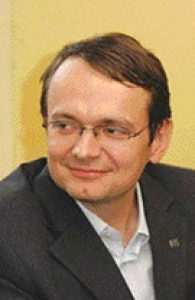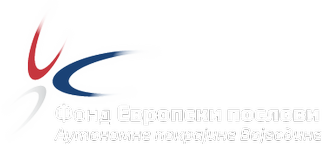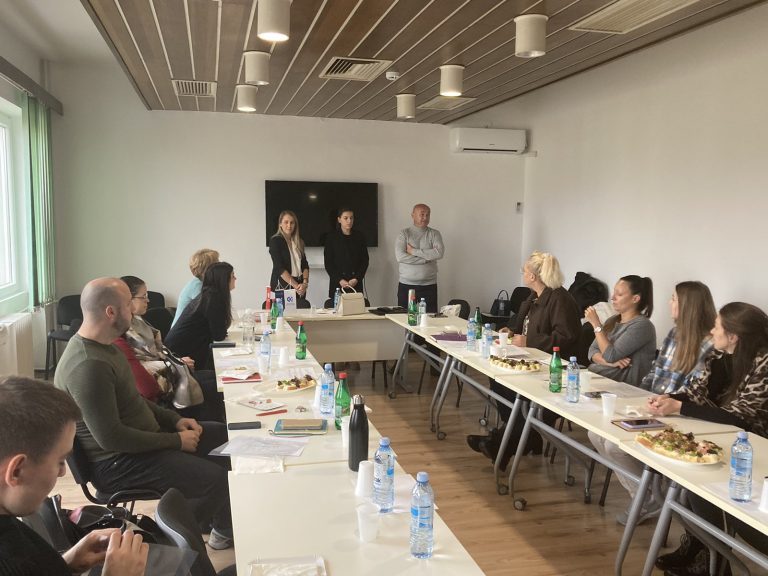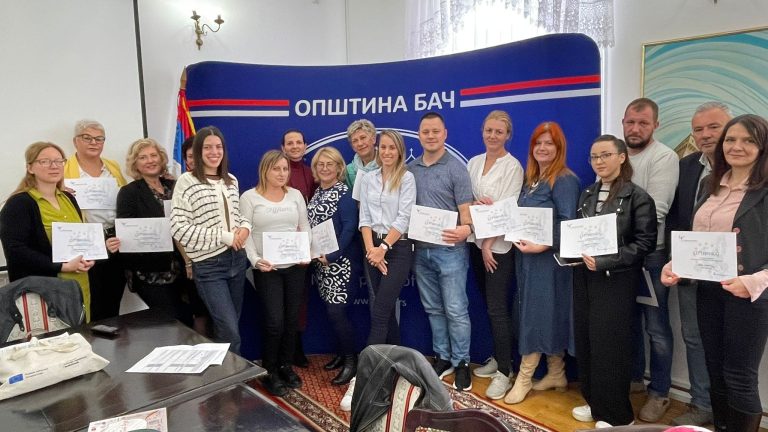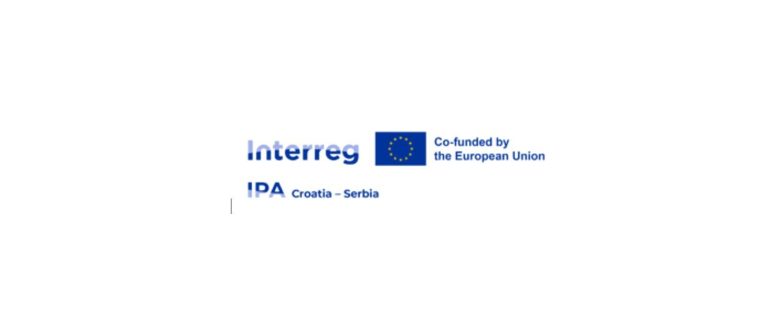Interview from “Danas”, published on August 16, Predrag Novikov, director of KEP
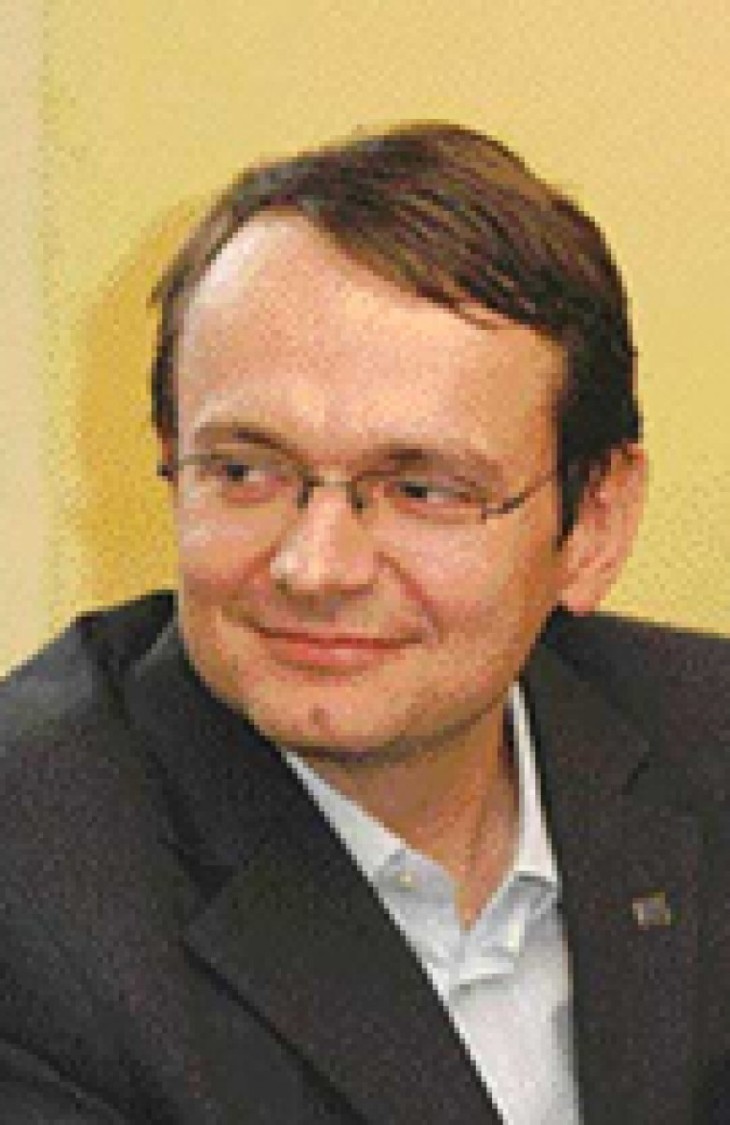
Serbia cannot be pulled only by Vojvodina and Belgrade
‘Vojvodina is today present in Brussels, London, Vienna, Budapest … by means of a number of activities and membership in relevant institutions. In terms of our nature, mentality, standards and respect for difference, we feel that we are already a part of European civilization. In fact, we are not going anywhere; we only need to realize that we are already there. Therefore, the next logical step is to do the same thing that more than 200 other European regions have done, i.e. to open our representative body in Brussels. We do not have to discover America once again, Vojvodina’s interest, and at the same time, the interest of other regions of our country is to be present at the place where decisions are made. We have seen during the past decades what it is like when we build barricades around us, when we become “the eldest and the smartest”, and when we make a bad estimate of the world around us and of our own strengths’, said Predrag Novikov, Director of the Office for European Affairs, Executive Council of Autonomous Province of Vojvodina.
The world does not revolve around us
-In your career, you worked in the field of financial market and investments in the largest Canadian bank in Vancouver, and then as a diplomat in Japan. What do we look like from the West and East and how does the world really see us?
– We suffer from the sense of great importance and we believe that the world revolves only around us, whilst in reality, we are quite often a marginal issue or a pledge around which the greater ones investigate. Of course, it does not mean that we should bow our heads and lose heart, on the contrary, we should be more realistic about our limits, we should not get easily involved in conflicts, we should avoid fatalistic attitudes and harsh words, build partnerships more carefully, have strength to learn from others and try to fit our own interests into the interests of larger countries.
-In addition to cultural and political lobbying for Vojvodina and Serbia, Vojvodina’s officials mostly use two arguments to defend the idea of the office in Brussels, which are the following: being on the spot and having a deeper insight into the projects for which money from substantial European funds would be spent. When exactly will Vojvodina open its representative body in Brussels?
– Starting from the highest state officials’ attitudes that the country will become an official candidate for EU membership next year, we believe that it will also be the ideal moment for opening our office in Brussels. We spent the last year on preparations and I may say that we are technically and administratively prepared. Of course, we are sending a clear message today that the doors of our office will be open to our colleagues from all regions, and especially to our country’s future regions.
– 3.3 billions of foreign investments have been made in Vojvodina since 2000, which resulted in the creation of employment for 38,000 people. Why has the greatest part of foreign investments in our country been realized here and what is the role of the Office for European Affairs in it?
– The result has not been produced by itself, but it has been a part of strategic decision-making and organized effort to look into the future. Therefore, the Executive Council established relevant institutions to realize that approach. Nowadays, we have the Office for European Affairs, Development Fund, Capital Investment Fund, Guarantee Fund, Fund for Investment Attraction, etc. Each of these institutions is a link in the chain, which within its scope of activities, works on the creation of new opportunities for faster and more successful economic and social development. No person is the most important, we are all part of the team with the same mission, and that is to bring welfare to our fellow-citizens. We do not want to miss a single opportunity offered to us, and therefore, we compete for capital at regional and international levels. Our partners are neighboring countries, and at the same time, our competitors as well. Moreover, no destination is too far to visit if we can establish contacts there, which will bring new investments, new projects and new opportunities for our citizens.
– Vojvodina is a member of the Institute of the Regions of Europe in Salzburg. In ten days’ time you will be attending the conference where ministers of European countries and a lot of economists will be present and where you will present Vojvodina. What can you tell us about the upcoming event?
– The Office for European Affairs has been a member of this significant institution, which gathers regions and cities from all over Europe, since 2006. In about ten days’ time, we will talk with our European partners about the modalities of financing of infrastructure projects, about European cross-border cooperation projects and about the realization of technological development programs. This year’s conference will be an excellent opportunity to present Vojvodina once more as a reliable partner and a safe location for direct investments.
– It was announced in media that Novi Sad is likely to be the host of the third International Conference on Natural Channel Systems next year through the Office for European Affairs and the Public Water Management Company “Vode Vojvodine”. What is the significance of this initiative?
– Vojvodina certainly has tremendous water potential and a wide, yet not enough exploited canal network. I believe that the restoration and modernization of waterways and canal network can provide a new incentive for the improvement of economy, tourism, agriculture and development of small places along river and canal basins and watersheds. In our opinion, this could be our chance to implement best practices in the country with the assistance of partners I talked to from the Netherlands, Great Britain, Ireland, Sweden and Norway. Therefore, we have done a project with which we apply for European funds, and within that project we wish to compete for the organization of the next year’s International Conference on Natural Channel Systems. In that way, we could acquire new knowledge, present our potentials and attract the attention of investors and administration of countries all over Europe. I would very much like to involve relevant ministries and institutions at the republican level into the organization of this event, and to use the opportunity to present the potentials of Djerdap and other locations in the country.
– In mid-October, you are going to participate in the large manifestation “Open Days” in Brussels, when more than 200 regions from all Europe gather. To what extent is Vojvodina treated as an equal member of European regions at such events?
– I am proud to say that based on our administrative capacity, we signed agreements on cooperation with regions from Italy, Austria, Germany, Slovakia, Hungary, Romania, etc. in a very short time. We have also entered into discussions with colleagues from Sweden, France, Spain… That is Vojvodina’s path, the path that provides space for new investments and cooperation in the area of sport, culture, education and technological development. All the aforementioned partners are certainly not here only to help us, but they also see their interest here, and that is good. I hope that there will be other regions in our country soon, since the country cannot function if it has only two engines: Vojvodina and Belgrade.
– To what extent does Vojvodina use its chances to attract European funds for the development of cross-border cooperation and what is the experience of Vojvodina’s Office for European Affairs in the transfer of experience or “planting shoot” throughout the municipalities in Serbia proper with reference to training of local self-government in applying for European IPA Funds?
– Vojvodina is certainly the leader in the country when it comes to the use of EU Pre-Accession Funds. We have realized around ten projects on the territory of our Province, however, we wish to offer our knowledge and experience to the other parts of the country. We want to transfer Vojvodina’s planting shoot to other places as well. Our Office provided training for the representatives of Niš, Kragujevac, Užice, Šabac, Despotovac, Lebane, Vlasotince, Dimitrovgrad, Golubac, Medve?a etc. Our colleagues from the EU Integration Office at state level also helped us in it. In addition, we organized a visit for the mayors from the south of the country to Brussels, where we opened to them the doors of European institutions and representative bodies of our regional partners. Generally speaking, the greatest challenge in the use of EU funds is lack of local administration that is trained, fluent in languages and familiar with very complicated procedures. European funds offer a great chance for development, however, if we do not have projects, the funds will not be used. Instead of providing support for Europeisation “in general”, “details” should be dealt with, because if you do not have projects, then you do not have instruments to support efficiently the development of your environment. Instead of all the pomp and bombastic words, this job ends with methodic, persistent, and systematic work.
